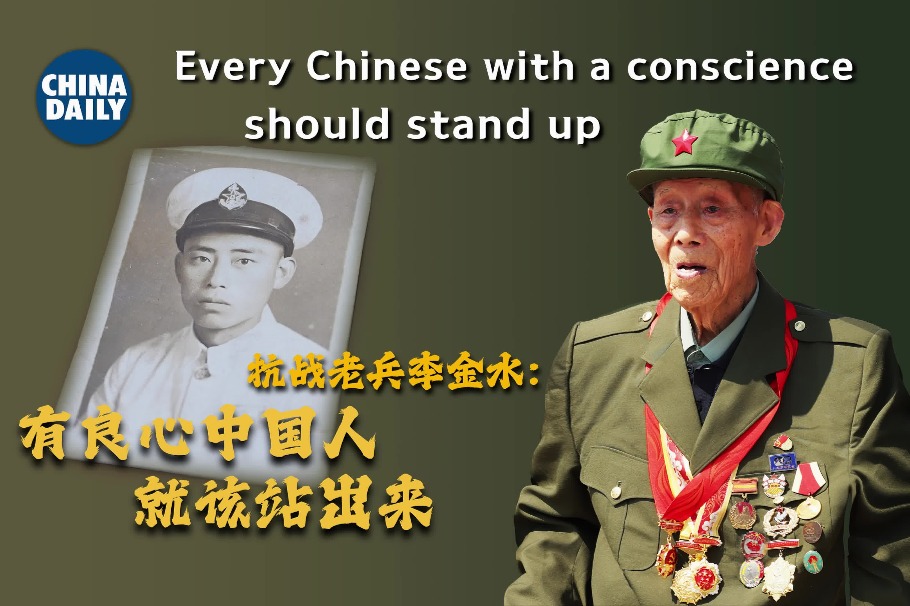Get the right bearings
Nixon's historic visit to China in 1972 offers important markers for orienting the Sino-US relationship today


This year marks the 50th anniversary of former US president Richard Nixon's visit to China and the issuance of the Shanghai Communique. The historic visit opened a new chapter in the China-US relationship and changed the global strategic landscape at the height of the Cold War. In Nixon's words, the visit was "the week that changed the world".
Today, China-US relations are at a new crossroad. The world is experiencing profound changes, which, compounded by the COVID-19 pandemic, have created a more complex environment for China-US relations. At the same time, domestic changes in China and the United States are also shaping their bilateral relations. If not handled properly, the China-US relationship will likely be headed for a "new Cold War" or even a "warm war" or "hot war". Therefore, the China-US relationship has become the major strategic concern of the world.
History does not repeat itself, but it rhymes. When we look back on Nixon's 1972 visit to China, one of the most important things we can learn is: China and the US should continue to think and talk about the big picture, demonstrate strategic courage and political resolve, and strive to build a new framework for healthy and constructive interactions between the two countries. In this process, three lessons can be drawn from Nixon's visit.
First, the Taiwan question is the most crucial and sensitive issue between China and the US. If it is handled wrong, it will cause severe damage to overall bilateral ties. In his first substantive meeting with former premier Zhou Enlai, Nixon endorsed a version of the five principles to which former US secretary of state Henry Kissinger had subscribed. The first principle is "There is one China, and Taiwan is a part of China. There will be no more statements made-if I can control our bureaucracy-to the effect that the status of Taiwan is undetermined". In this way, Nixon abandoned the US long-held position that the status of Taiwan is undetermined. The second one is "We have not and will not support any Taiwan independence movement".That has served as the cornerstone for the stable development of China-US relations over the past decades.
However, in recent years, Washington has deliberately emphasized that its one-China principle is different from Beijing's one-China policy, highlighting the Taiwan Relations Act and the so-called Six Assurances in its dealings with Taiwan in recent years. Moreover, US lawmakers have introduced bill after bill to ramp up substantive ties with Taiwan. The erosion of the one-China principle plus the refusal of Taiwan's authorities to recognize the 1992 Consensus could result in a disaster.
The US should abide by the one-China principle and three China-US Joint Communiques, treat the Taiwan question in a serious and proper manner and not send any wrong signals to the Taiwan pro-independence forces, so as not to damage China-US relations and stability across the Taiwan Straits.
Second, seeking common ground while shelving differences is one of the main reasons why China and the US were able to break the ice in their relationship. Both Zhou and Nixon shared this spirit. When they exchanged toasts at the welcoming banquet in the Great Hall of the People, Zhou said: "The social systems of China and the US are fundamentally different, and there exist great differences between the Chinese government and the US government. However, these differences should not hinder China and the US from establishing normal state relations on the basis of the Five Principles of Peaceful Coexistence; still less should they lead to war." Nixon responded: "We have at times in the past been enemies. We have great differences today. What brings us together is that we have common interests which transcend those differences. As we discuss our differences, neither of us will compromise our principles. But while we cannot close the gulf between us, we can try to bridge it so that we may be able to talk across it." Putting aside differences and seeking common ground to push the bilateral relations forward is one of the most important legacies of that visit.
Today, putting aside differences is not enough to handle the increasingly complicated China-US relations well. The US sees shelving differences as a strategy for China to gain a competitive advantage. In this context, both sides should strive to resolve differences and expand common ground. As President Xi Jinping has stressed, "as long as both sides uphold mutual respect, expand common ground while resolving differences, maintain strategic patience, and remain unperturbed by individual incidents or particular comments, we will be able to keep the overall China-US relations on a firm footing despite the ups and downs that may come our way". The key is to manage the differences constructively so that they don't magnify or exacerbate.
Last but not the least, non-interference in each other's internal affairs is one of the Five Principles of Peaceful Coexistence that are the basis for China-US relations. In his 1972 visit to China, Nixon announced his goal of "building a world structure of peace and justice in which all may stand together with equal dignity and in which each nation, large or small, has a right to determine its own form of government, free of outside interference or domination". Fifty years have passed, but the principle holds true for handling international relations.
In recent years, the US has called for non-interference in its way of life and democracy, but it has persistently interfered in China's internal affairs in Taiwan, Hong Kong, Xinjiang and Tibet, under the pretexts of "democracy" and "human rights". China has not and will not interfere in the US' internal affairs; the US should stop its interference in China's. Mutual respect would help to prevent China-US relations from getting derailed or spiralling out of control.
The author is deputy director and a research professor at the Institute of American Studies at the China Institutes of Contemporary International Relations. The author contributed this article to China Watch, a think tank powered by China Daily.
The views do not necessarily reflect those of China Daily.
Contact the editor at editor@chinawatch.cn

































